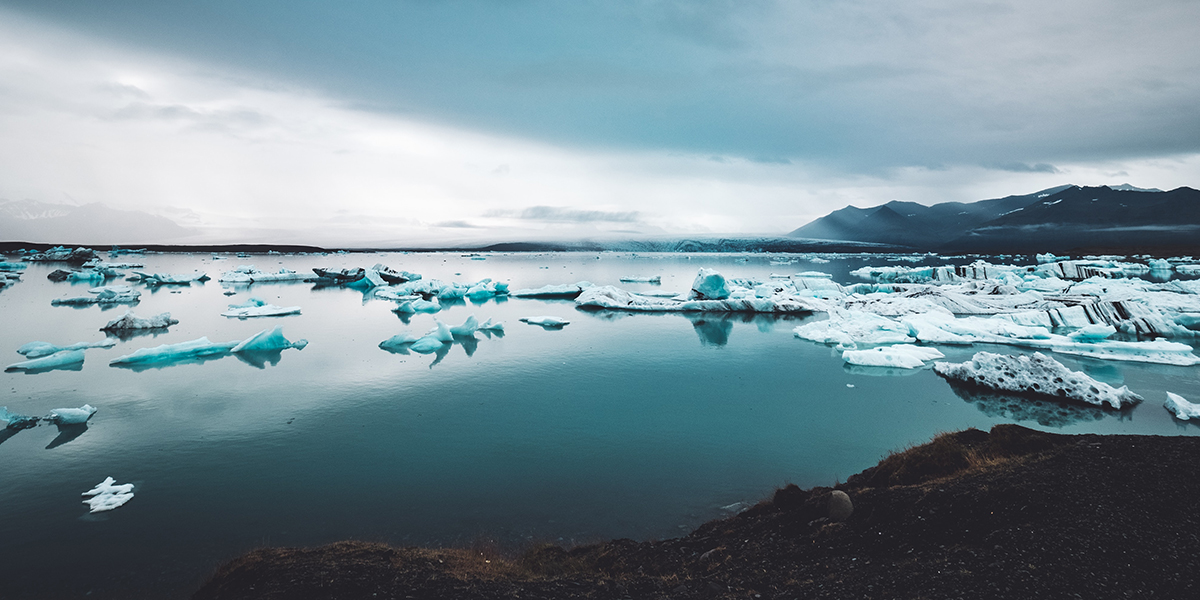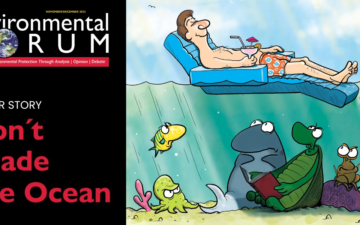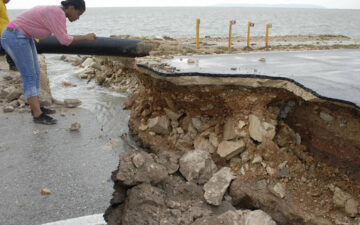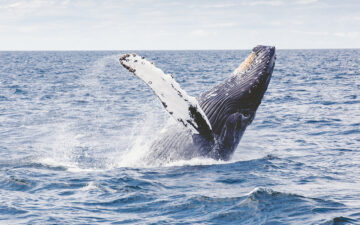September 25, 2019 – This morning in the Principality of Monaco, the Intergovernmental Panel on Climate Change (IPCC) released the Special Report on the Ocean and Cryosphere in a Changing Climate (SROCC). The report scrutinizes current scientific understandings of the threats climate change poses to our ocean, its related ecosystems, and the human communities that depend on them. The IPCC is a body of the United Nations with the specific purpose of assessing science related to climate change. More than 100 scientists from 30 different countries contributed to the SROCC.
The conclusions of the SROCC make it clear: the globe must urgently address mitigating the effects of climate change and start developing adaptation strategies in anticipation of what lies ahead. Policymakers and consumers need to consider how their decisions and influence affect the ocean and world’s water systems, as the ocean’s health directly exacerbates the unforgiving consequences of climate change.
The Ocean Foundation’s expertise spans the issues of ocean acidification mitigation, coastal community adaptation and resilience, and advising policy for numerous issues threatening the ocean. The findings of the SROCC assure us that these goals are correct and necessary, but ultimately, collective and swift action must happen to safeguard the planet as we know it.
About the Special Report on the Ocean and Cryosphere in a Changing Climate:
The chapters of the SROCC focus on high mountain areas, polar regions, sea level rise, changing ocean ecosystems and dependent communities, and extreme changes and managing risks. There is also a ten page summary provided for policymakers.
The report relays observed and projected changes in these areas and what they understand to be the drivers of these changes. It notes vulnerabilities and risks for societies that depend on these ecosystems and potential response and hazard management strategies.
Takeaways from the SROCC include a warning of extreme weather and continued sea level rise, which are unavoidable for the next century due to carbon emissions that have already warmed the planet. Adaptation methods will also be necessary to reduce the risks of wildfires, landslides, and salinity intrusion, among others. Ecosystems also face continued changes due to the loss of sea surface oxygen, ocean acidification, and sea ice change. Some examples include coral reefs remaining at a high risk and threatened biodiversity in coastal ecosystems. In many scenarios, continued high carbon emissions yield more extreme effects and less capacity for adaptation than low carbon emissions.
About The Ocean Foundation’s work:
While the report paints a dire picture if we do not reverse the trends of the climate crisis, it also invigorates organizations like The Ocean Foundation to bolster our work. Ocean optimism comes from working and consulting with corporations who seek to not only support sustainability work, but also adopt sustainability principles; partnering with aligned organizations to multiply results; and integrating governments with our work so that they can facilitate progress with their constituencies.
In Puerto Rico, our Blue Resilience Initiative is working with staff at the Jobos Bay National Estuarine Research Reserve, volunteers, and local scientists to restore seagrass and mangrove habitats. Through training others in coastal restoration techniques and providing ongoing assistance, we hope to equip our partners with the tools and expertise they need to pursue their own coastal resilience projects. Collectively, we can rapidly enhance the island’s natural infrastructure and make communities more resilient in the face of increasingly severe storms and flooding while sequestering carbon from the ocean, as the ocean increasingly absorbs anthropogenic carbon emissions.
Ocean acidification is another product of the carbon emissions causing our climate to be so disrupted. The Ocean Foundation is working to combat ocean acidification in Mexico, the Caribbean, and beyond, our International Ocean Acidification Initiative is working with governments to enhance ocean acidification ocean observations, mitigation, and adaptation efforts. By helping to craft legislation and train scientists on the use of ocean acidification monitoring equipment, we are working at both the policy and scientific level to address this global challenge. In addition to hosting workshops, The Ocean Foundation also curates affordable monitoring equipment to laboratories across the ocean.
About The Ocean Foundation:
The Ocean Foundation is the only community foundation for the ocean, with a mission to support, strengthen, and promote those organizations dedicated to reversing the trend of destruction of ocean environments around the world. The Ocean Foundation’s International Ocean Acidification Initiative, Blue Resilience Initiative, Redesigning Plastic Initiative, and 71% Initiative work to equip communities that depend on the ocean’s health with resources and knowledge for policy advising and for increasing capacity for mitigation, monitoring, and adaptation strategies.
For Media
Jason Donofrio
External Relations Officer
The Ocean Foundation
[email protected]
(202) 318-3178
Alexis Valauri-Orton
Program Manager
The Ocean Foundation
[email protected]
(202) 318-3166
Mark J. Spalding
President
The Ocean Foundation
[email protected]







